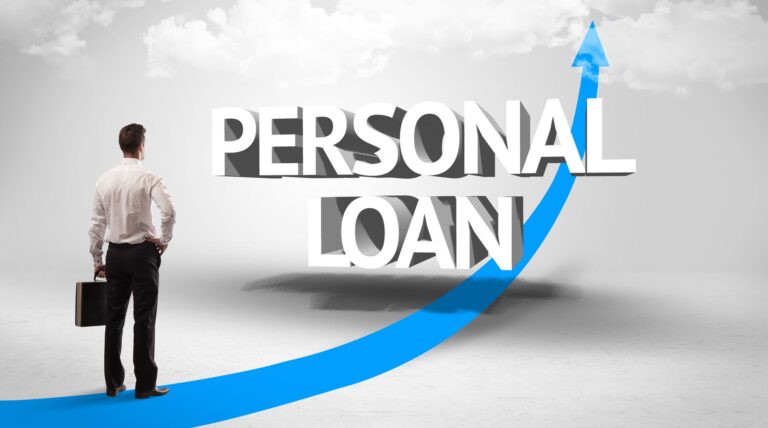Which Home Loan Is Right For You?
When you’re in the market for a home loan, it can be overwhelming to navigate the vast array of loan options available. Each option comes with its own set of terms, conditions, and benefits. Understanding these options is crucial to making an informed decision that will help you finance your dream home without jeopardizing your financial future.
In this article, we’ll break down the different types of home loans, the factors to consider when choosing a loan, and provide answers to common questions to guide you through the process. By the end of this guide, you’ll have a clearer idea of which home loan is right for you.
Key Takeaways
- Assess your financial situation before choosing a loan type, including your credit score, income, and down payment.
- Fixed-rate mortgages offer stability, while ARMs may offer lower initial rates but come with the risk of fluctuating payments.
- First-time buyers may benefit from FHA loans or other low down payment options.
- Refinancing your home loan can be an excellent way to reduce your monthly payments or access home equity.
Understanding Home Loans: A Quick Overview

Before diving into the details of various loan options, it’s essential to grasp the basics of what a home loan is. A home loan, also known as a mortgage, is a type of loan used to finance the purchase of a property. This loan is typically secured by the home itself, meaning that if you fail to repay the loan, the lender can foreclose on the property to recover the amount owed.
Home loans come in several forms, each offering different interest rates, repayment terms, and eligibility criteria. Some are designed for first-time buyers, while others cater to more experienced homeowners or those looking to refinance their current mortgage.
Let’s explore the most common types of home loans and what you should consider when choosing the one that best fits your financial situation.
Types of Home Loans

1. Fixed-Rate Mortgages
Fixed-rate mortgages are one of the most popular types of home loans. As the name suggests, the interest rate on a fixed-rate mortgage remains the same for the entire term of the loan, providing stability in your monthly payments. These loans typically come in 15, 20, or 30-year terms.
Pros:
- Predictable monthly payments.
- Protection from interest rate fluctuations.
- Ideal for long-term homeowners.
Cons:
- Higher interest rates compared to adjustable-rate mortgages (ARMs).
- Less flexibility if you plan to move or refinance before the loan term ends.
2. Adjustable-Rate Mortgages (ARMs)
With an ARM, the interest rate is initially lower than that of a fixed-rate mortgage but fluctuates after a set period, typically 5, 7, or 10 years. After this initial period, the rate adjusts annually based on market conditions, which means your monthly payments could increase or decrease.
Pros:
- Lower initial interest rate, which can mean lower initial payments.
- Potential for lower long-term interest costs if rates stay stable or decrease.
Cons:
- Uncertainty regarding future payments.
- Risk of higher payments if interest rates rise.
3. FHA Loans
The Federal Housing Administration (FHA) insures loans made by approved lenders to borrowers with low to moderate incomes. FHA loans typically require lower down payments and have more lenient credit score requirements.
Pros:
- Low down payment options (as low as 3.5%).
- Easier credit score requirements.
- Ideal for first-time homebuyers or those with less-than-perfect credit.
Cons:
- Mortgage insurance is required, adding to the cost.
- Limits on the loan amount depending on the location.
4. VA Loans
The Department of Veterans Affairs (VA) offers home loans to veterans, active-duty service members, and certain members of the National Guard and Reserves. VA loans require no down payment or private mortgage insurance (PMI), making them an excellent option for eligible borrowers.
Pros:
- No down payment required.
- No PMI requirement.
- Competitive interest rates.
Cons:
- Only available to eligible veterans, service members, and their families.
- Funding fees may apply.
5. USDA Loans
The U.S. Department of Agriculture (USDA) offers loans to homebuyers in rural and suburban areas. These loans are designed to promote homeownership in less-populated areas and offer low-interest rates with no down payment required.
Pros:
- No down payment requirement.
- Low-interest rates.
- Ideal for rural or suburban buyers.
Cons:
- Geographic restrictions—only available in eligible areas.
- Income limits for eligibility.
6. Jumbo Loans
A jumbo loan is a type of mortgage loan that exceeds the conforming loan limits set by the Federal Housing Finance Agency (FHFA). These loans are used for purchasing high-cost properties and typically require a larger down payment and a higher credit score.
Pros:
- Suitable for high-value properties.
- Allows purchase of homes that exceed conventional loan limits.
Cons:
- Higher interest rates than conventional loans.
- Stricter requirements, such as higher credit scores and larger down payments.
7. Home Equity Loans and HELOCs
| Feature | Home Equity Loan (HEL) | Home Equity Line of Credit (HELOC) |
|---|---|---|
| Loan Type | Lump sum loan | Revolving credit line |
| Repayment Structure | Fixed monthly payments | Flexible payments based on the amount borrowed |
| Interest Rate | Fixed interest rate | Variable interest rate |
| Loan Term | Typically 5 to 30 years | Typically 5 to 10 years for the draw period |
| Loan Amount | Based on home equity (usually up to 85% of equity) | Based on home equity (usually up to 85% of equity) |
| Disbursement | Lump sum disbursement | Access funds as needed through checks or a credit card |
| Use of Funds | Typically used for one large expense (e.g., home improvement, debt consolidation) | Flexible use of funds for multiple expenses |
| Monthly Payments | Fixed and predictable payments | Varies based on usage and interest rate fluctuations |
| Closing Costs | May have higher upfront fees | Usually lower closing costs than a Home Equity Loan |
| Risk | Risk of foreclosure if payments are missed | Risk of foreclosure if payments are missed |
| Ideal For | Large, one-time expenses | Ongoing or multiple expenses (e.g., home repairs, education) |
These loans allow homeowners to borrow against the equity they’ve built in their property. Home Equity Loans (HELs) provide a lump sum amount with a fixed interest rate, while a Home Equity Line of Credit (HELOC) functions like a credit card, where you can borrow up to a set limit.
Pros:
- Lower interest rates compared to unsecured loans.
- Flexibility with HELOCs—borrow as needed.
Cons:
- Risks losing your home if you default on payments.
- Interest rates on HELOCs can be variable.
Key Factors to Consider When Choosing a Home Loan
1. Your Financial Situation
Before choosing a home loan, assess your financial situation, including your income, debts, savings, and credit score. If you have a stable income and a strong credit history, you may qualify for loans with better terms, such as lower interest rates and larger loan amounts.
2. Down Payment
The down payment is a critical factor in your loan choice. Traditional loans may require a 20% down payment, while FHA and VA loans can allow for much lower down payments. If you can afford a larger down payment, you may be able to secure a better loan term and avoid private mortgage insurance (PMI).
3. Interest Rates
The interest rate will have a significant impact on the total cost of your loan over time. Fixed-rate loans offer predictable payments, while ARMs may start with lower rates that could increase. Consider your ability to handle fluctuations in monthly payments when choosing an ARM.
4. Loan Term
Loan terms generally range from 15 to 30 years. Shorter terms typically offer lower interest rates, but higher monthly payments. Longer terms may lower your monthly payments but increase the total interest paid over time.
5. Type of Property
Certain loan types, such as USDA loans, are designed specifically for rural or suburban properties, while VA loans are for veterans and active-duty service members. Choose a loan type that is applicable to the property you intend to buy.
Also Read :- What Can You Really Gain from an Online MBA?
Conclusion
Choosing the right home loan is a crucial decision that depends on your financial situation, future goals, and the property you wish to buy. Fixed-rate and adjustable-rate mortgages, FHA, VA, USDA, and jumbo loans all have unique advantages and drawbacks. Take the time to evaluate your needs, explore different options, and consult with a financial advisor or mortgage broker to ensure you select the best loan for your situation.
FAQs
1. What is the best home loan for first-time buyers?
The best home loan for first-time buyers is typically an FHA loan due to its low down payment requirements and more lenient credit score standards. However, if you’re a veteran, a VA loan might be a better option due to the lack of down payment and PMI requirements.
2. Should I choose a fixed-rate or adjustable-rate mortgage?
If you plan to stay in the home for a long time, a fixed-rate mortgage provides stability in payments. However, if you plan to sell or refinance within a few years, an adjustable-rate mortgage (ARM) could offer lower initial rates.
3. How much down payment do I need for a home loan?
A down payment typically ranges from 3% to 20%, depending on the loan type. For conventional loans, 20% is standard to avoid PMI, while FHA loans may require as little as 3.5%.
4. What is PMI and do I need it?
Private Mortgage Insurance (PMI) is required if you make a down payment of less than 20% on a conventional loan. PMI protects the lender in case you default on the loan. Certain loans, like FHA loans, include mortgage insurance, even with a small down payment.
5. Can I get a home loan with bad credit?
It’s possible to secure a home loan with bad credit, but your options may be limited to FHA loans or subprime loans, which come with higher interest rates. Improving your credit score before applying will increase your chances of qualifying for a better loan.
6. What is the difference between a home equity loan and a HELOC?
A home equity loan provides a lump sum with a fixed interest rate, while a Home Equity Line of Credit (HELOC) allows you to borrow up to a certain limit as needed, with a variable interest rate.
7. Can I refinance my home loan?
Yes, refinancing allows you to replace your current mortgage with a new one, usually to secure a better interest rate, change the loan term, or access home equity. Refinancing can lower your monthly payment or reduce your loan term.





